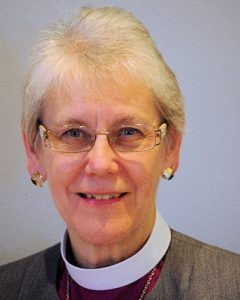
Some years ago, a group in the diocese of Toronto sought to develop a healing centre similar to that of Burrswood in England. I was on the board of that effort, and one of our first tasks was to define what it means to be whole—to be healed.
This is actually more difficult than it seems. Are we ever fully healed and well? There always seems to be some aspect of our life that is in pain, distressed or unbalanced! How do we define health?
We turned to the World Health Organization for their definition: “Health is a state of complete physical, mental, and social well-being and not merely the absence of disease or infirmity.” This seemed to recognize that at any moment we were seeking the greatest possible balance of life, but it was missing what for us was critical and essential—the spiritual aspect. Our lives are more than our physical bodies, our mental balance or our social relationships. Existence is about meaning and purpose, which are the elements of our spiritual lives. So our definition added that, in recognition that the heart of our wholeness is in our relationship to the meaning of life—the deepest values of the heart and soul, our spiritual compass.
For Christians that spiritual wholeness is found in our relationship with God through Jesus Christ. We recognize our life is part of the gift of creation for the purpose of loving God and each other as Christ loves us. Any break in that relationship—sin—has an effect on our whole lives. The harmony of our life is disrupted and we are not well. We all have experienced how guilt or hurts given to others disrupt our lives with emotional and mental pain and destroyed social relationships. Our health is restored as much through forgiveness and grace as it is through medicines and therapy.
That is why our wholeness is found in a partnership between the wisdom and gifts of medicine and the gifts of pastoral care and the sacraments. The former restores the harmony of body and mind, while the latter restores the harmony of relationship with God and one another—our deepest values and beliefs about who and why we are.
This partnership is particularly demonstrated in the work of chaplains in hospitals and nursing homes. At times of crisis, through illness and suffering, chaplains pay attention to the spiritual heart and guide reflection on that key relationship with God and God’s love. It was my joy to share this partnership in parish ministry with a team of clergy and a parish nurse. The parish nurse was a key link between the physical, mental, social and spiritual aspects of the lives of parishioners, knowing how to connect with the medical systems and linking needs for sacramental or spiritual care with the clergy and pastoral caregivers. Chaplains and parish nurses are essential partners with the other healing professions. I urge your support and advocacy for both in our communities.
In my ministry I have met people whose body will be healed but their spirit is bitter and angry, their relationships fractured. I have also met people who are terminally ill but whose deep relationship with God is joyful and gives life to all around them.
Our health is not in body or mind alone. It is in that optimal harmony that is rooted in our relationship with God that knows that nothing can separate us from God’s love in Jesus Christ.





